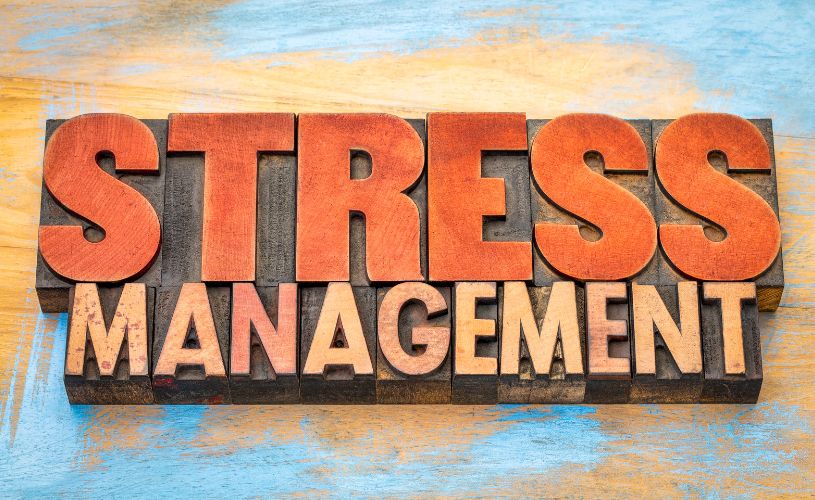Flying an aircraft, whether as a commercial pilot or a private aviator, is an exhilarating experience. However, it also comes with significant responsibilities and stressors that must be managed effectively to ensure safety and performance. Cockpit stress management is a critical aspect of aviation, and it begins with a comprehensive approach that encompasses various factors.

Contents
- The Importance of Cockpit Stress Management
- Headings
- 1. Understanding Cockpit Stress
- 2. Pre-flight Preparation and Planning
- 3. Crew Resource Management (CRM)
- 4. Training and Simulation
- 5. Mental Preparedness and Resilience
- 6. Communication Skills
- 7. Time Management
- 8. Physical Well-being
- 9. Sleep Management
- 10. Debriefing and Post-flight Analysis
- Conclusion
The Importance of Cockpit Stress Management
Before we delve into the specifics, it’s crucial to understand why cockpit stress management is vital in aviation. The cockpit, also known as the flight deck, is where pilots operate the aircraft and make critical decisions throughout the flight. Any undue stress or anxiety can compromise a pilot’s ability to think clearly, make sound judgments, and react effectively in emergencies.
The consequences of poor cockpit stress management can range from minor errors to catastrophic accidents. Therefore, it’s paramount that pilots and aviation professionals adopt strategies and practices to mitigate stress and ensure safe flights.
Headings
1. Understanding Cockpit Stress
To effectively manage cockpit stress, it’s essential to understand the various sources of stress that pilots may encounter. These sources can include weather-related challenges, equipment malfunctions, air traffic control communications, passenger issues (for commercial pilots), and more. By identifying stressors, pilots can take proactive steps to address them.
2. Pre-flight Preparation and Planning
One key aspect of cockpit stress management is thorough pre-flight preparation and planning. This includes reviewing weather conditions, flight routes, fuel requirements, and maintenance checks. Adequate preparation reduces last-minute stressors and allows pilots to focus on the task at hand.
3. Crew Resource Management (CRM)
CRM is a systematic approach to enhancing aviation safety through improved communication and collaboration among the flight crew. Effective CRM helps distribute the cognitive load and ensures that all members of the crew are engaged in decision-making and problem-solving. This approach can significantly reduce stress in the cockpit.
4. Training and Simulation
Continuous training and simulation exercises are essential components of cockpit stress management. Pilots undergo rigorous training to handle various scenarios and emergencies, which helps build confidence and reduces stress when facing challenging situations in real flights.
5. Mental Preparedness and Resilience
Mental preparedness involves cultivating a mindset that anticipates and adapts to stress. Resilience training can help pilots develop the psychological tools to cope with stress and remain focused during challenging flights.
6. Communication Skills
Effective communication is crucial in cockpit stress management. Pilots need to communicate clearly and concisely with air traffic control, cabin crew (for commercial flights), and other crew members. Training in assertive communication and active listening can enhance cockpit communication.
7. Time Management
Managing time efficiently is another critical factor. Pilots must balance various tasks during a flight, including navigation, communication, and monitoring aircraft systems. Effective time management reduces cognitive overload and stress.

8. Physical Well-being
Physical health plays a significant role in stress management. Proper nutrition, hydration, and regular exercise contribute to a pilot’s overall well-being and ability to handle stress.
9. Sleep Management
Fatigue can exacerbate stress and impair decision-making. Pilots must prioritize sufficient sleep and rest between flights to maintain optimal performance and reduce the risk of stress-related errors.
10. Debriefing and Post-flight Analysis
After a flight, debriefing sessions are crucial for discussing the flight’s events and identifying areas for improvement. Post-flight analysis helps pilots learn from experiences and refine their stress management strategies.
Conclusion
Good cockpit stress management is a multifaceted approach that encompasses various aspects of preparation, training, communication, and well-being. It begins with a deep understanding of the stressors unique to aviation and a commitment to proactive stress mitigation.
Cockpit stress management is not only essential for safety but also for ensuring that pilots can enjoy their profession and the thrill of flying. By implementing comprehensive stress management strategies, aviation professionals can navigate the skies with confidence, resilience, and a focus on safe and successful flights.






